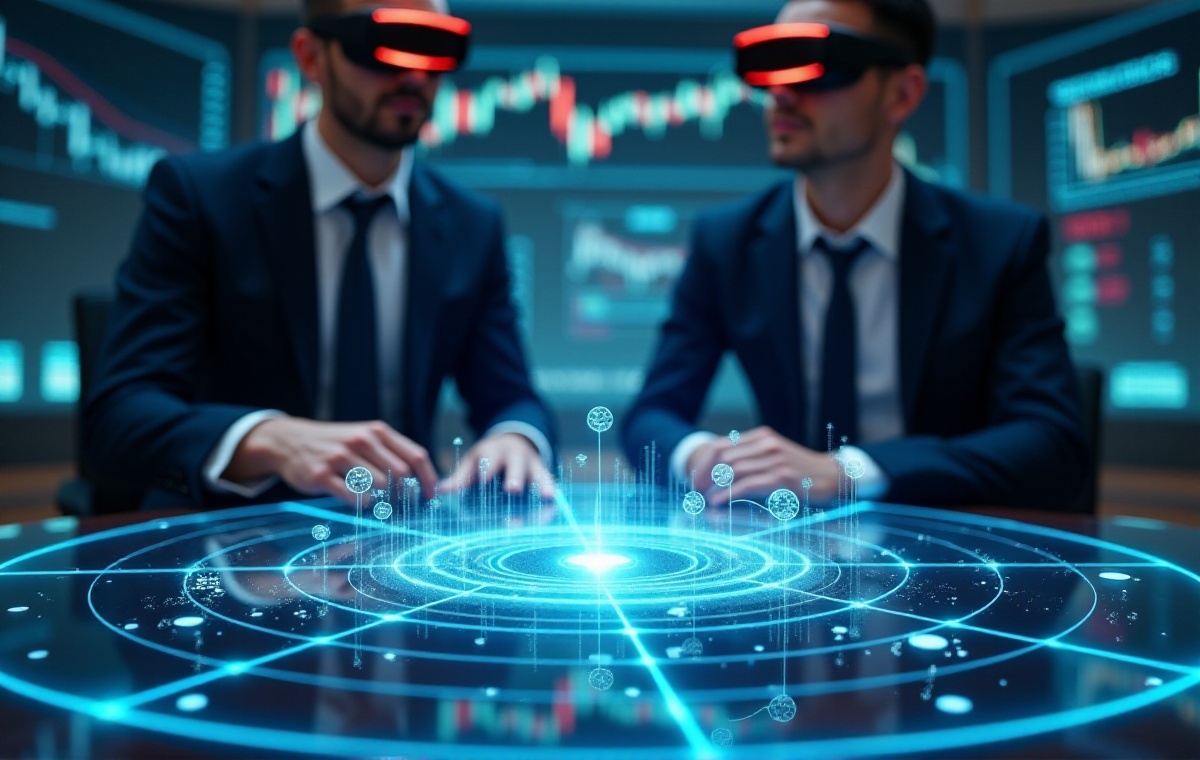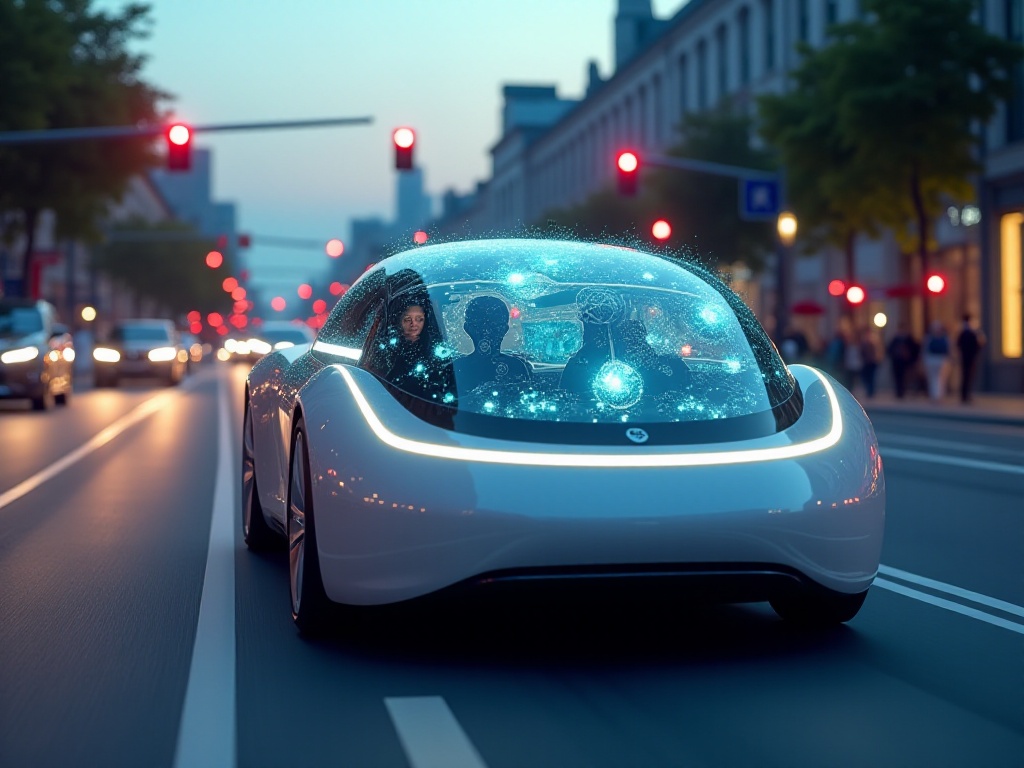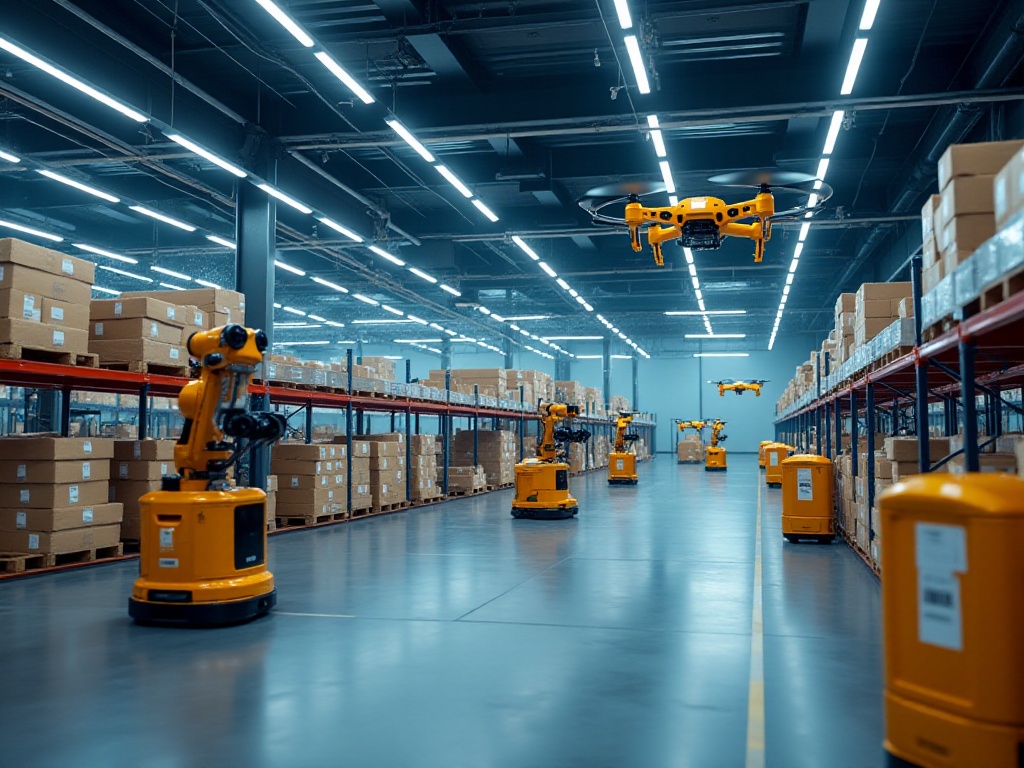Introduction
In recent years, our lives have undergone dramatic changes. Whether browsing Taobao, watching videos, we always find content that interests us; when shopping late at night and encountering problems, smart customer service responds instantly to help; even at the doctor's office, AI assists in reviewing medical images. These changes feel absolutely amazing and have completely transformed our previous way of life.
I remember watching sci-fi movies as a child, thinking those smart robots and self-driving cars were far away from us. But looking back now, many advanced technologies have quietly entered our daily lives and are incredibly convenient to use. All of this is thanks to the rapid evolution of artificial intelligence technology.
Life Assistant
Speaking of changes AI has brought to life, the smart speaker in my home is absolutely magical. Every morning when I wake up, I habitually ask: "Xiao Ai, how's the weather today?" It immediately tells me the specific weather conditions, including temperature, air quality, and even reminds me whether to bring an umbrella or wear a coat based on weather changes. Sometimes when I'm feeling down, I chat with it to lift my spirits. Although its responses aren't super intelligent yet, they're enough to cheer me up.
The recently added robot vacuum cleaner has really amazed me. I used to think robot vacuums were just a gimmick, but after using one I discovered it's truly powerful! It not only automatically plans routes to clean rooms but also precisely avoids furniture obstacles using laser radar. Most impressively, it can remember my home's floor plan and knows which areas tend to collect dust and need focused cleaning. I can even control it remotely through a mobile app - while I'm slacking off at work, it can clean my home in advance. It's absolutely essential for home life!
Moreover, there are so many smart home devices now. Smart curtains can automatically adjust based on sunlight, smart air conditioners automatically adjust temperature and airflow direction, smart locks enable keyless entry through fingerprint and facial recognition, and even toilets can automatically measure weight and analyze physical condition. These devices are all connected through the Internet of Things, forming a complete smart home ecosystem.
Once when I returned very late from a business trip, I used the mobile app to turn on the air conditioner and water heater before getting home. When I arrived, the room temperature was perfect and the hot water was ready - taking a hot shower and going straight to bed felt absolutely amazing! This kind of technological convenience is truly addictive.
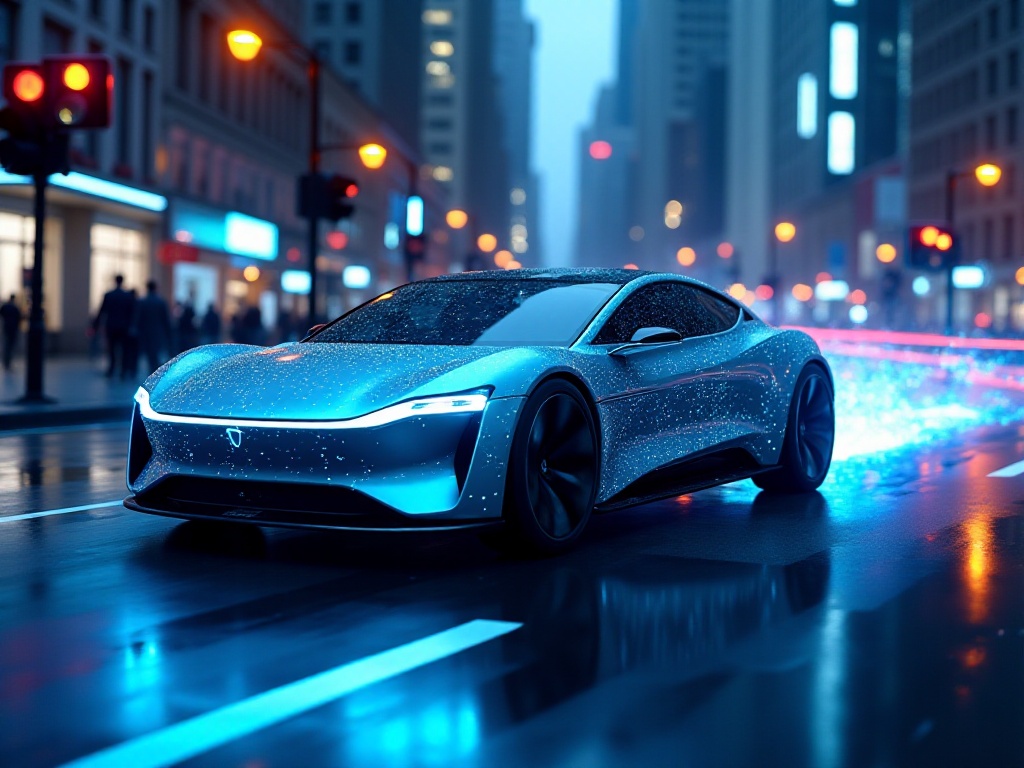
Smart Transportation
Let's talk about changes in transportation. Navigation apps now are like super assistants - they not only help plan optimal routes but also automatically adjust based on real-time traffic conditions. Last week when I drove to a new place and encountered road construction detours, Gaode Maps immediately replanned my route and thoughtfully reminded me to be careful of heavy traffic ahead. Most amazingly, it can predict speed cameras ahead and remind me to watch my speed - it's absolutely essential for experienced drivers!
Shared mobility platforms are becoming increasingly intelligent. Take DiDi for example - its smart dispatch system can predict transportation demands in different areas through big data analysis and arrange drivers in advance. When matching drivers and passengers, it considers many factors like passenger destinations, driver empty-trip rates, road conditions, etc., ensuring the best experience for both parties.
Once when I was rushing to catch a flight and time was very tight, DiDi's system directly assigned me a nearby driver and planned a route avoiding congestion, amazingly allowing me to catch my flight. This system reportedly reduced average passenger waiting times by 30%, which is a lifesaver during rush hours in big cities.
Smart parking is also a cool application. Many shopping malls and office buildings now have smart parking guidance systems - when you enter the parking lot, LED displays tell you which floor and area has available spaces, eliminating the hassle of driving around looking for spots. Some high-end parking lots even have automatic parking systems - you just drive to the entrance and the system automatically parks your car. When retrieving your car, just call it through the mobile app and it automatically drives to the exit waiting for you - it couldn't be more convenient!
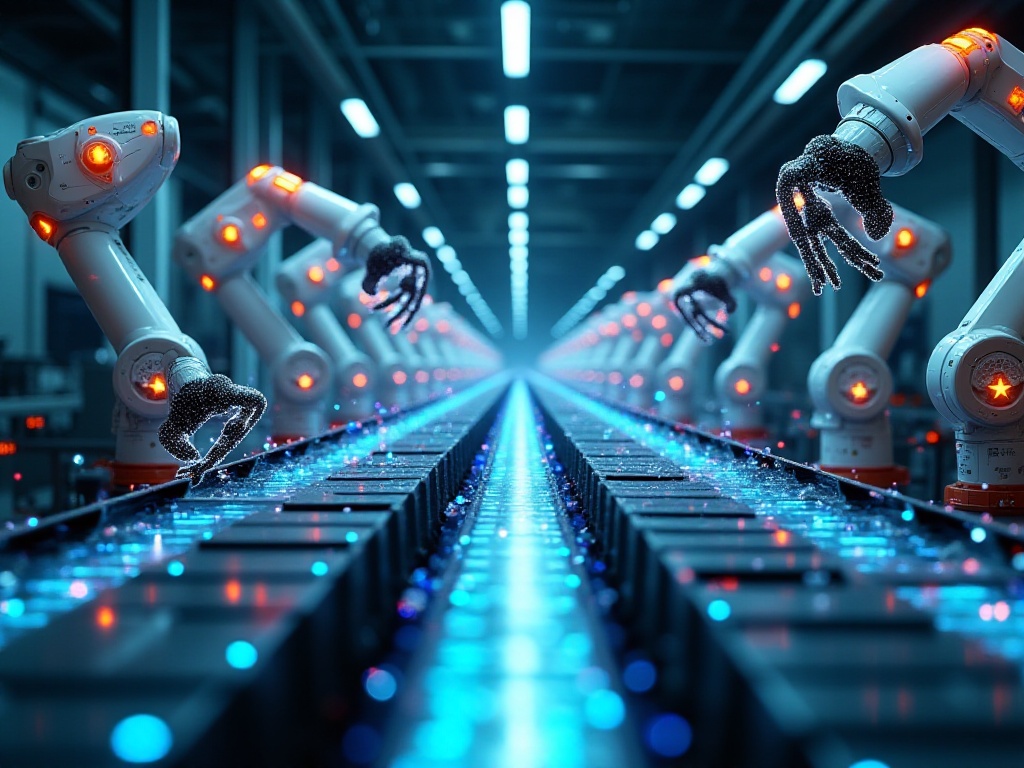
Smart Marketing
Speaking of areas where AI applications are most deeply integrated, e-commerce platforms are definitely among them. Today's e-commerce platforms understand us so well - sometimes while browsing you'll see items you've been wanting for a long time. This feeling of "precise targeting" is both scary and satisfying.
Take Taobao for example - its recommendation system analyzes various user behavior data including browsing history, purchase history, favorites, time spent, etc., then uses algorithms to build user profiles and push products that best match personal preferences. Sometimes its recommendations are scary accurate - I might just casually mention to a friend that I want to buy a new phone, and the next day Taobao is full of phone recommendations. This feeling of having your mind "read" by AI is truly amazing.
Smart customer service is also an impressive application. Once when I wanted to return something late at night, I thought I'd have to wait until the next day to contact customer service, but when I opened the chat box I found an AI service representative that not only responded instantly but was also very professional. It could accurately understand my problem, guide me through the process step by step, and successfully resolved the issue. Moreover, its responses didn't seem robotic at all - the tone was natural and it could respond appropriately based on context. This experience really exceeded my expectations.
Many brands are now using AI for personalized marketing. Some cosmetics brands use AI to analyze your face shape and skin condition to recommend the most suitable products; some clothing brands recommend appropriate outfits based on your body measurements and style preferences. This precise marketing not only improves conversion rates but also helps consumers find what they want more quickly.
Social media's smart recommendations are also impressive. Platforms like Douyin and Xiaohongshu have algorithms that can precisely capture users' interests and continuously push related content. Sometimes you get so absorbed that what was meant to be a 10-minute browse turns into two hours. These platforms' smart algorithms are really good at capturing user psychology, making it hard to stop.
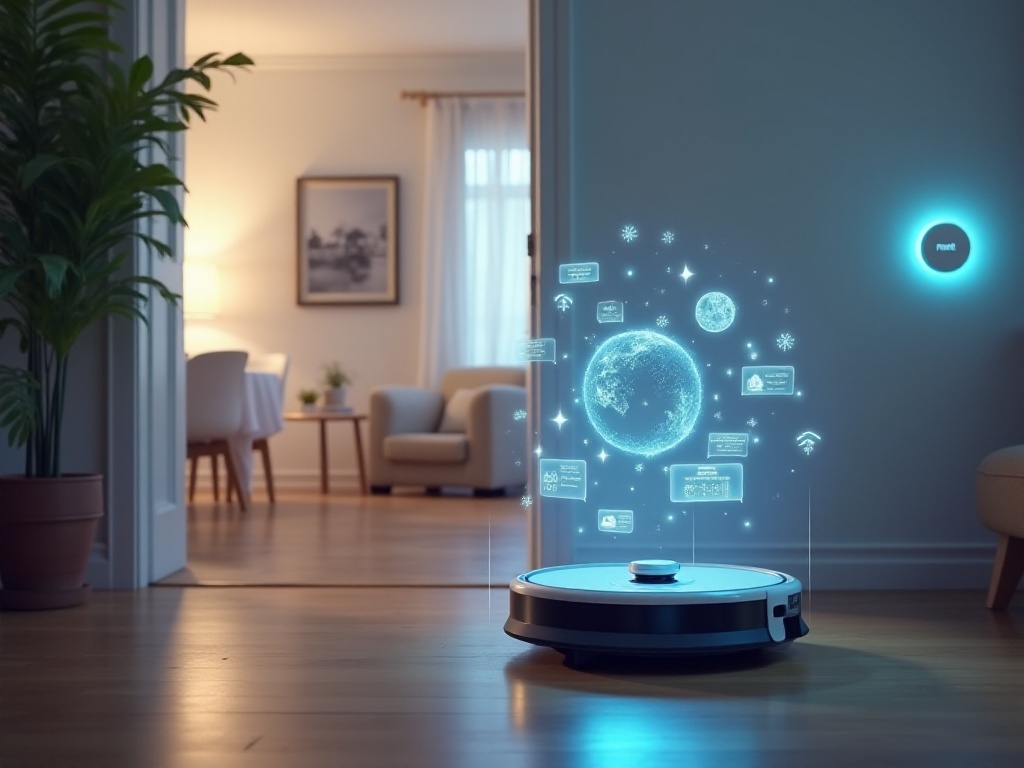
Medical Technology
In the medical field, AI applications are even more impressive. Last year's experience accompanying my father for a chest CT examination gave me a deep appreciation for medical AI. The AI-assisted diagnostic system the doctor used was incredibly powerful - it could analyze an entire CT scan in seconds, automatically marking suspicious lesions with very high accuracy.
According to the doctor, this system not only improves diagnostic efficiency but also helps identify small lesions that might be easily missed by human eyes. This is especially important in primary hospitals that may lack experienced radiologists - this system greatly improves diagnostic accuracy. Data shows that this system's lung nodule detection rate reaches 96%, about 10 percentage points higher than regular doctors, which is very important for early screening and diagnosis.
AI applications in new drug development are even more stunning. Traditional drug development is long and expensive, requiring screening of massive compounds and countless experiments. But with AI's help, this process has been greatly accelerated. AI can quickly analyze vast amounts of medical literature and clinical data, helping researchers find potential drug molecules and greatly improving research efficiency.
AI can also simulate interactions between drug molecules and targets, predicting drug effects and possible side effects. This allows screening of the most promising drug candidates at the laboratory stage, avoiding many unnecessary experiments and saving significant time and cost. Statistics show that AI-assisted drug development can reduce traditional 10-15 year development cycles to 5-7 years, which is a blessing for patients urgently needing new drugs.
In daily diagnosis and treatment, AI has also brought many conveniences. Many hospitals now have smart triage systems - you just describe your symptoms and it helps you find the appropriate department; some hospitals have launched AI consultation systems that can provide preliminary diagnoses for common ailments and give medication advice online, which is especially convenient for minor health issues.
I recently heard that some hospitals are using AI-assisted surgical planning systems. These systems can build 3D models based on patient imaging data to help doctors develop optimal surgical plans. During surgery, AI can provide real-time navigation to ensure surgical precision. The application of these technologies not only improves surgical success rates but also reduces patient suffering.
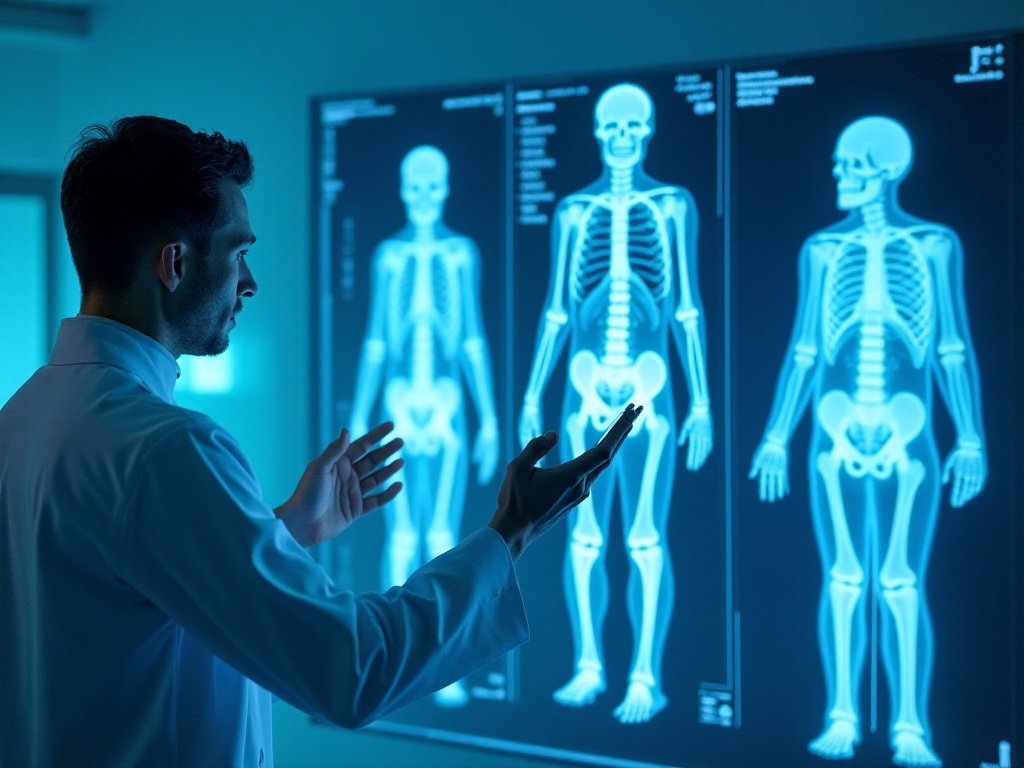
Looking to the Future
Seeing all this, we can't help but marvel at how AI has brought revolutionary changes to our lives. But honestly, this might just be the tip of the iceberg. There are more amazing application scenarios waiting for us to discover in the future.
For example, in education, AI might completely change traditional teaching models. Imagine every student having a personal AI tutor that can develop personalized learning plans based on individual learning characteristics and progress, timely identify knowledge gaps and provide targeted guidance - such learning experiences would definitely be much more interesting than now.
AI also has great potential in environmental protection. It can monitor changes in air quality, water quality, and forest coverage in real-time by analyzing satellite images and sensor data, helping us better protect the environment. In energy utilization, AI can optimize power grid scheduling, improve renewable energy efficiency, and help achieve carbon neutrality goals.
In cultural and creative fields, AI has shown amazing creativity. There are already AIs that can create music, paint, and even write novels. Although not perfect yet, with technological advancement, we might really see AI artists in the future bringing us unprecedented artistic experiences.
In urban management, the concept of smart cities is becoming increasingly clear. Through AI technology, city systems like transportation, energy, and security can achieve intelligent management, making city operations more efficient and citizens' lives more convenient.
However, while technology develops, we must also consider some issues. Will AI development affect employment? How do we protect personal privacy? Are AI decisions always reliable? These are questions we need to seriously address.
But regardless, AI technology development is unstoppable, and more amazing applications will surely appear in the future. This future isn't something we wait for - it's something we create together. As young people of the new era, we need to learn to embrace change, actively understand and use these new technologies to maintain competitiveness in the AI era.
Finally, here's an interesting question: if you could choose one AI application you want most, what would it be? An AI assistant that helps write papers? An AI doctor that predicts health risks? Or some other interesting application? Everyone surely has their own answer.

